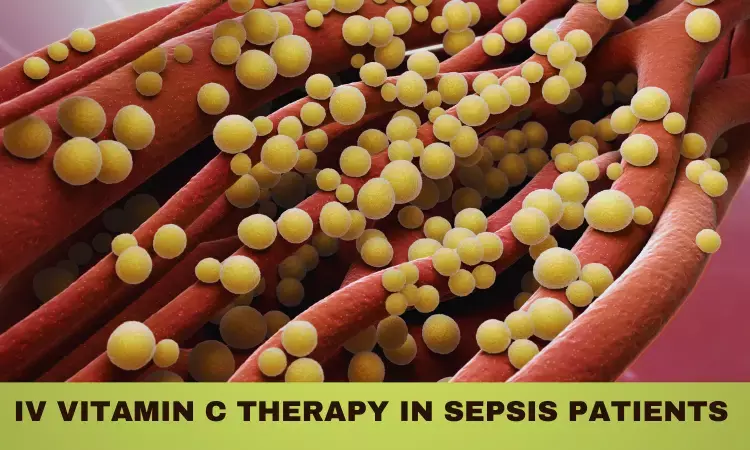- Home
- Medical news & Guidelines
- Anesthesiology
- Cardiology and CTVS
- Critical Care
- Dentistry
- Dermatology
- Diabetes and Endocrinology
- ENT
- Gastroenterology
- Medicine
- Nephrology
- Neurology
- Obstretics-Gynaecology
- Oncology
- Ophthalmology
- Orthopaedics
- Pediatrics-Neonatology
- Psychiatry
- Pulmonology
- Radiology
- Surgery
- Urology
- Laboratory Medicine
- Diet
- Nursing
- Paramedical
- Physiotherapy
- Health news
- Fact Check
- Bone Health Fact Check
- Brain Health Fact Check
- Cancer Related Fact Check
- Child Care Fact Check
- Dental and oral health fact check
- Diabetes and metabolic health fact check
- Diet and Nutrition Fact Check
- Eye and ENT Care Fact Check
- Fitness fact check
- Gut health fact check
- Heart health fact check
- Kidney health fact check
- Medical education fact check
- Men's health fact check
- Respiratory fact check
- Skin and hair care fact check
- Vaccine and Immunization fact check
- Women's health fact check
- AYUSH
- State News
- Andaman and Nicobar Islands
- Andhra Pradesh
- Arunachal Pradesh
- Assam
- Bihar
- Chandigarh
- Chattisgarh
- Dadra and Nagar Haveli
- Daman and Diu
- Delhi
- Goa
- Gujarat
- Haryana
- Himachal Pradesh
- Jammu & Kashmir
- Jharkhand
- Karnataka
- Kerala
- Ladakh
- Lakshadweep
- Madhya Pradesh
- Maharashtra
- Manipur
- Meghalaya
- Mizoram
- Nagaland
- Odisha
- Puducherry
- Punjab
- Rajasthan
- Sikkim
- Tamil Nadu
- Telangana
- Tripura
- Uttar Pradesh
- Uttrakhand
- West Bengal
- Medical Education
- Industry
Does vitamin C therapy improve outcomes in sepsis patients? Study sheds light

China: Intravenous Vitamin C (IVVC) therapy improves Organ failure Scores and the duration of Vasopressor use in sepsis and septic Shock Patients. Still, it fails to curtail mortality and adverse reactions, as indicated in a study published in Critical Care.
Sepsis, a condition characterized by life-threatening dysfunction of the organs caused by a host response to infection, and septic shock, a type of sepsis with a greater risk of mortality, collectively contribute to 11 million deaths annually across the globe. This places sepsis among the top health threats the World Health Organization identified.
The study was conducted by Dr Baofang Liang and his team of researchers, who analyzed 18 randomized controlled trials involving a total of 3,364 patients with sepsis or septic shock who received IV vitamin C therapy. The primary outcome measured was the delta Sequential Organ Failure Assessment (SOFA) score 72-96 hours after treatment. The SOFA score measures the extent of organ dysfunction in sepsis patients.
The key clinical takeaways from the study were:
- The study found that patients who received IV vitamin C therapy had a significant improvement in delta SOFA score from baseline to 72-96 hours after treatment.
- The duration of vasopressor use was significantly reduced in patients who received the therapy.
- The study also found that IV vitamin C therapy was not associated with reducing short-term mortality rates.
- The therapy did not improve overall mortality rates, but a 25-100 mg/kg/day dose significantly reduced short-term mortality rates.
- The study found that IV vitamin C therapy was associated with a higher risk of adverse events. Patients who received the therapy had a nearly two-fold increased risk of adverse events compared to those who did not receive the therapy.
The authors added that “IV vitamin C therapy may improve organ failure scores and reduce vasopressor use in patients with sepsis or septic shock. The therapy does not appear to improve short-term mortality rates and may increase the risk of adverse events. Further research is needed to determine the long-term effects of IV vitamin C therapy in sepsis patients.”
Reference:
Liang, B., Su, J., Shao, H. et al. The outcome of IV vitamin C therapy in patients with sepsis or septic shock: a meta-analysis of randomized controlled trials. Crit Care 27, 109 (2023). https://doi.org/10.1186/s13054-023-04392-y
Dr. Mahalakshmi Sivashankaran joined Medical Dialogues as an Intern in 2023. She is a BDS graduate from Manipal College of Dental Sciences, Mangalore Batch 2022, and worked as a Junior Resident at VMMC & Safdarjung Hospital at the Department of Dental Surgery till January 2023. She has completed a Diploma in Executive Healthcare management from the Loyola Institute of Business Administration, developing skills in Healthcare Management and Administration. She covers several medical specialties including Dental, ENT, Diagnostics, Pharmacology, Neurology, and Cardiology.
Dr Kamal Kant Kohli-MBBS, DTCD- a chest specialist with more than 30 years of practice and a flair for writing clinical articles, Dr Kamal Kant Kohli joined Medical Dialogues as a Chief Editor of Medical News. Besides writing articles, as an editor, he proofreads and verifies all the medical content published on Medical Dialogues including those coming from journals, studies,medical conferences,guidelines etc. Email: drkohli@medicaldialogues.in. Contact no. 011-43720751


